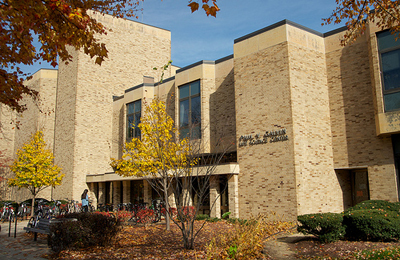
The Department of Biological Sciences is pleased to present a seminar by Patricia A. Champion, assistant professor of biological sciences at the University of Notre Dame. The talk, “Quantitative and molecular insights into mycobacterial pathogenesis,” will take place on Tuesday, September 9 at 4:00 p.m. in 283 Galvin Life Science.
One in three people globally are infected with Mycobacterium tuberculosis, the causative agent of Tuberculosis (TB). Although only 5-10% of infected people develop active disease, there are still approximately 1.4 million deaths annually. This burden of infection and disease is in part due to a lack of a viable vaccine that protects adults from TB. To develop the vaccines and therapeutics needed to control the TB epidemic, we first need a better understanding of M. tuberculosis biology and the mechanisms it uses to circumvent the host immune response. The Champion laboratory is interested in the targeted transport (secretion) of bacterial proteins, a key mechanism that bacteria use to promote their survival within the host. Bacterial proteins directly interact with and disrupt the function of host cellular processes which are required for identifying and eliminating the bacteria. Targeted protein secretion is used by several successful bacterial pathogens, including M. tuberculosis. Esx-1(ESAT-6 system-1) is a specific protein export system that is conserved across diverse bacterial species. Through a better understanding of protein transport systems including Esx-1 we will gain important insight into how mycobacteria interact with the host and cause disease. We are focused on defining the molecular mechanisms underlying mycobacterial pathogenesis. To this end we have designed and implemented several approaches to identify novel Esx-1 genes. Moreover, we have developed and applied novel assays to clarify and define the molecular mechanisms underlying Esx-1-mediated protein transport. We expect that this course of research will not only expand our understanding of the Esx-1 system, but may also lead to the identification of novel targets for anti-virulence based therapeutics against TB.
Originally published at biology.nd.edu.